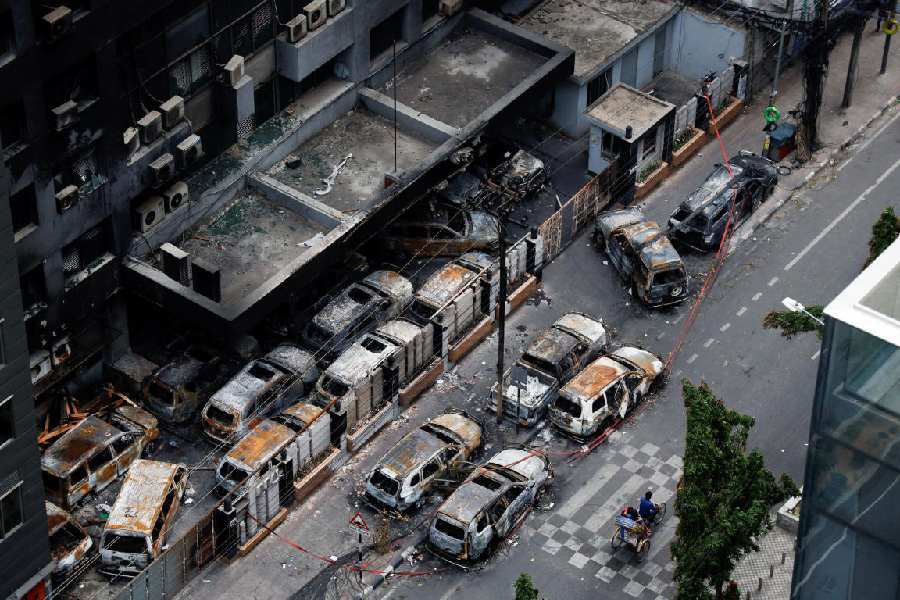Rush-hour traffic returned to the streets of the Bangladeshi capital Dhaka on Wednesday, as a curfew was eased after four days of nationwide shutdown that followed deadly protests led by university students against quotas in government jobs.
Offices reopened and broadband internet was largely restored, although social media continued to be suspended, days after the clashes between protesters and security forces killed almost 150 people.
The country has been relatively calm since Sunday, when the Supreme Court ruled in favour of an appeal from Prime Minister Sheikh Hasina's government and directed that 93% of jobs should be open to candidates on merit.
Bangladesh's mainstay garment and textiles industries, which supply to major Western brands, also began reopening some factories after a pause in production during the curfew.
"All our factories are open today. Everything is going smoothly," said S.M. Mannan, president of the Bangladesh Garment Manufacturers and Exporters Association.
The stock exchange opened too, as well as banks, after remaining shut the past two days.
Residents of Dhaka were out on the streets, some making their way to offices as public buses also began running in some places.
"It was a hassle to reach the office on time," said Shamima Akhter, who works at a private firm in the capital. "Some roads are still blocked for security reasons. Don't know when everything will get normal."
Local news websites, which had stopped updating since Friday, were back online too.
Bangladesh authorities had shut mobile internet and deployed the army on the streets during the curfew that was imposed from midnight on Saturday.
The government said curfew restrictions would be relaxed for seven hours on Wednesday and Thursday, and offices would also be open from 11 a.m. to 3 p.m.
STUDENT DEMANDS
Analysts say the student action has given fresh impetus to Hasina's critics, months after she won a fourth-straight term in power in January in a national election boycotted by the main opposition party.
"The informal federation of government critics appears deeper and wider than before the election, which presents a serious challenge to the ruling party," said Geoffrey Macdonald at the United States Institute of Peace.
Hasina, 76, is the daughter of Sheikh Mujibur Rahman, the founding father of Bangladesh, who led the country's movement for independence from Pakistan.
The earlier 56% job quotas included a 30% reservation for families of veterans of the 1971 independence war, which critics said favoured supporters of Hasina's Awami League.
Hasina's government had scrapped the quotas in 2018, but a high court ruling reinstated the them last month.
Students were furious because quotas left fewer than half of state jobs open on merit amid an unemployment crisis, particularly in the private sector, making government sector jobs with their regular wage hikes and perks especially prized.
Hasina has blamed her political opponents for the violence and her government said on Tuesday that it would heed the Supreme Court ruling.
The main opposition Bangladesh Nationalist Party has denied any involvement in the violence and accused Hasina of authoritarianism and a crackdown on her critics, charges denied by her government.
Protesting students have given the government a fresh 48-hour ultimatum to fulfil four other conditions of an eight-point list of demands, and said they would announce their next steps on Thursday.
"We want the government to meet our four-point demand, including restoration of internet, withdrawal of police from campuses, and opening universities (which have been closed for a week)," protest coordinator Nahid Islam said.











